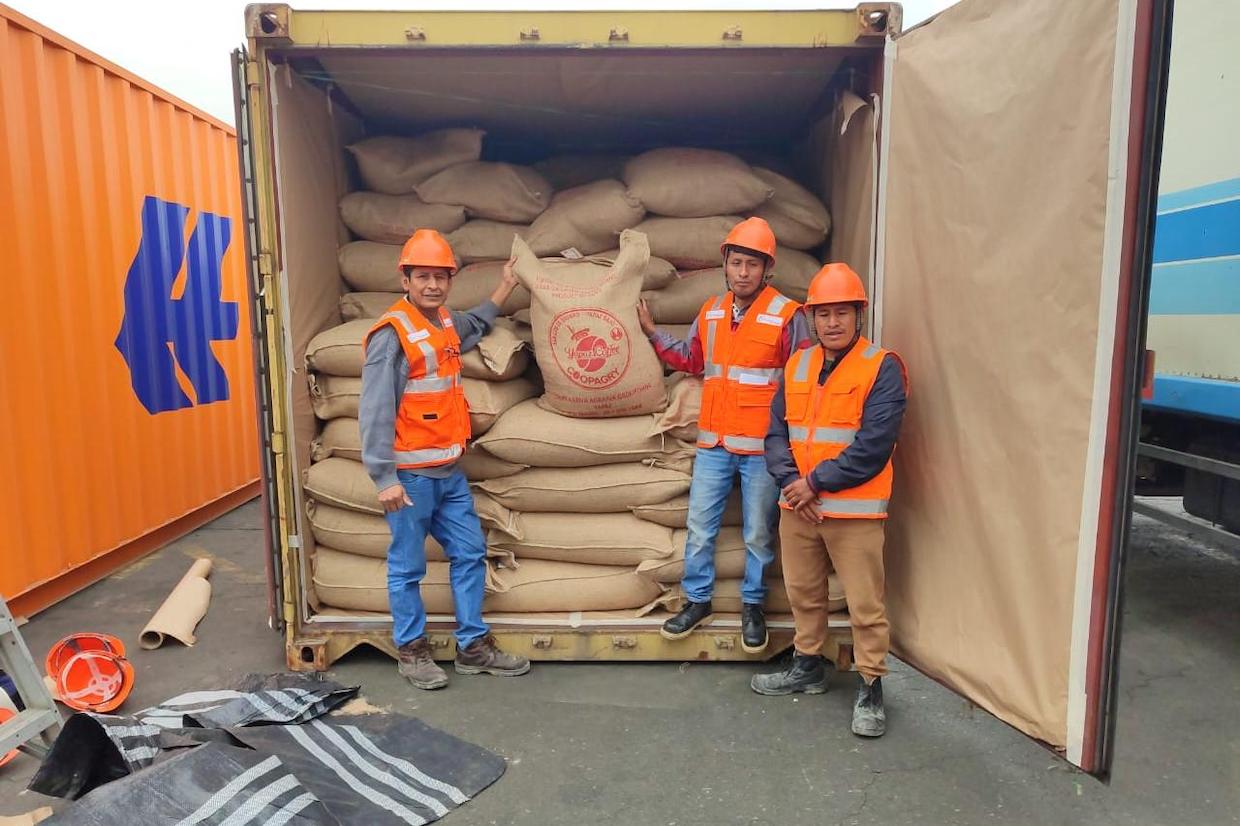
The first container of COOPAGRY coffees destined for the United States. All images courtesy of San Cristobal Coffee Importers.
Kirkland, Washington-based specialty coffee trader San Cristobal Coffee Importers recently introduced its first offerings from Peru following a unique partnership model involving multiple coffee organizations.
Along with sibling company Cafés Sustenebles de Mexico (CAFESUMEX), and an internship program with producer group Grupo Terruño Nayarita (GTNay) in Mexico, the importer recently brought to market the first coffees from Cooperativa Agraria Groupthink Yapaz (COOPAGRY) of Peru.
COOPAGRY was formally established by third-generation members of the coffee-farming Vivanco family in the Peru central jungle region of Junín.
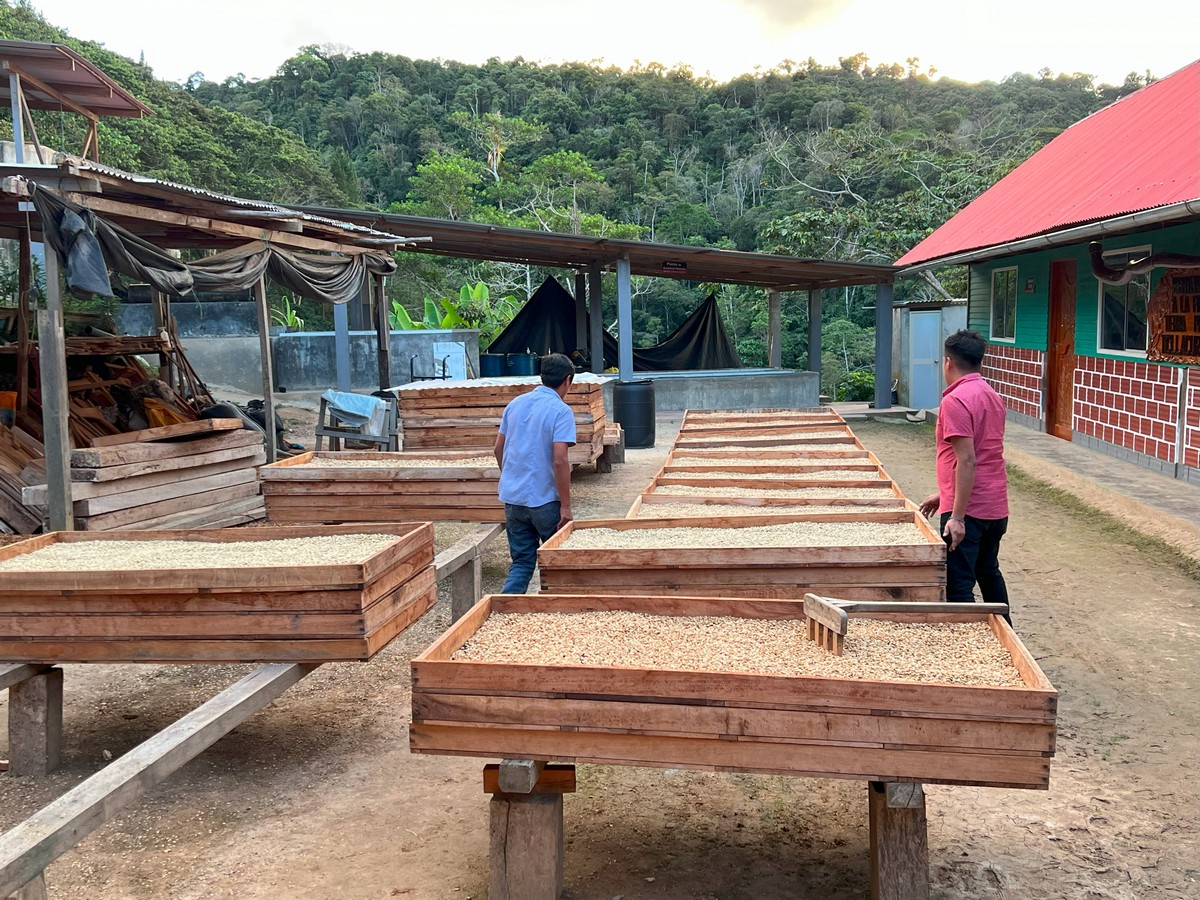
While the region is known for its abundance of high-elevation coffees — often grown organically and in shaded or partial-shade conditions — access among the region’s smallholder farmers to premium international markets has historically been limited.
According to San Cristobal, four members of the Vivanco family — Alex, Flor and Jean Pierre, plus their uncle David — sought to build a different model that could capture more value for smallholder farmers.
They established the cooperative in 2023, then headed to San Cristobal’s sibling organization, exporter CAFESUMEX in Mexico, for an “internship” on quality- and capacity-building during the 2024 harvest.
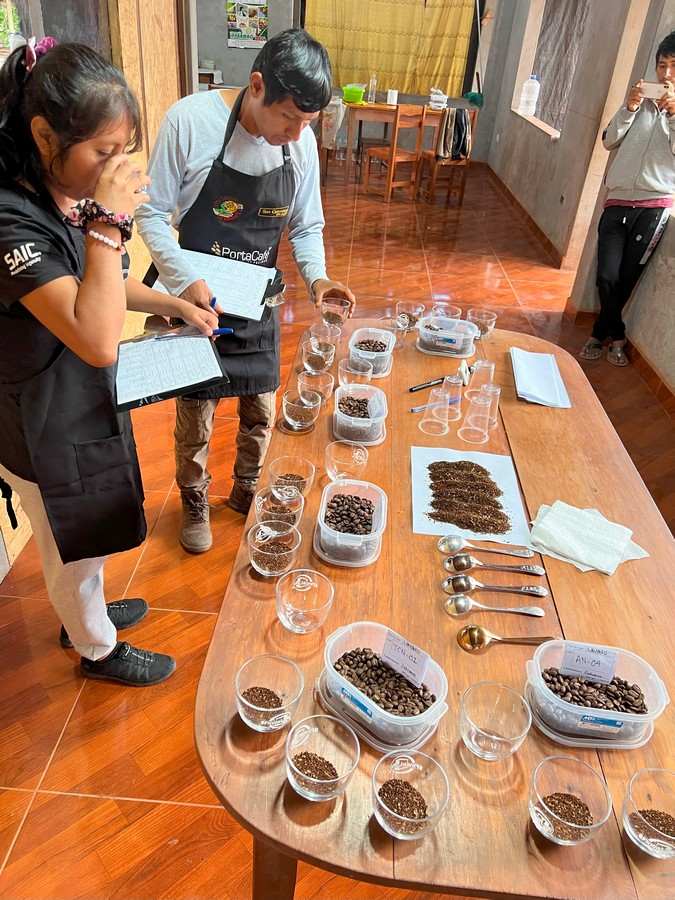
Upon the success of the internship, the young cooperative agreed to enlist San Cristobal as its North American green coffee distributor.
According to San Cristobal, a key element of the partnership is the implementation the FincaLab/CAFESUMEX portable coffee laboratory, a proprietary quality management system for green coffee that includes both hardware and software. The system was originally developed with the GTNay, which now has more than 600 producer members in Mexico. It has since also been implemented in Ethiopia through the San Cristobal network.
In its first year, COOPAGRY enlisted approximately 100 nearby smallholder farmers to participate in a new market strategy that involved selling enough coffee through their existing cooperative channels to meet daily needs, while reserving a portion of their harvest for the new project.
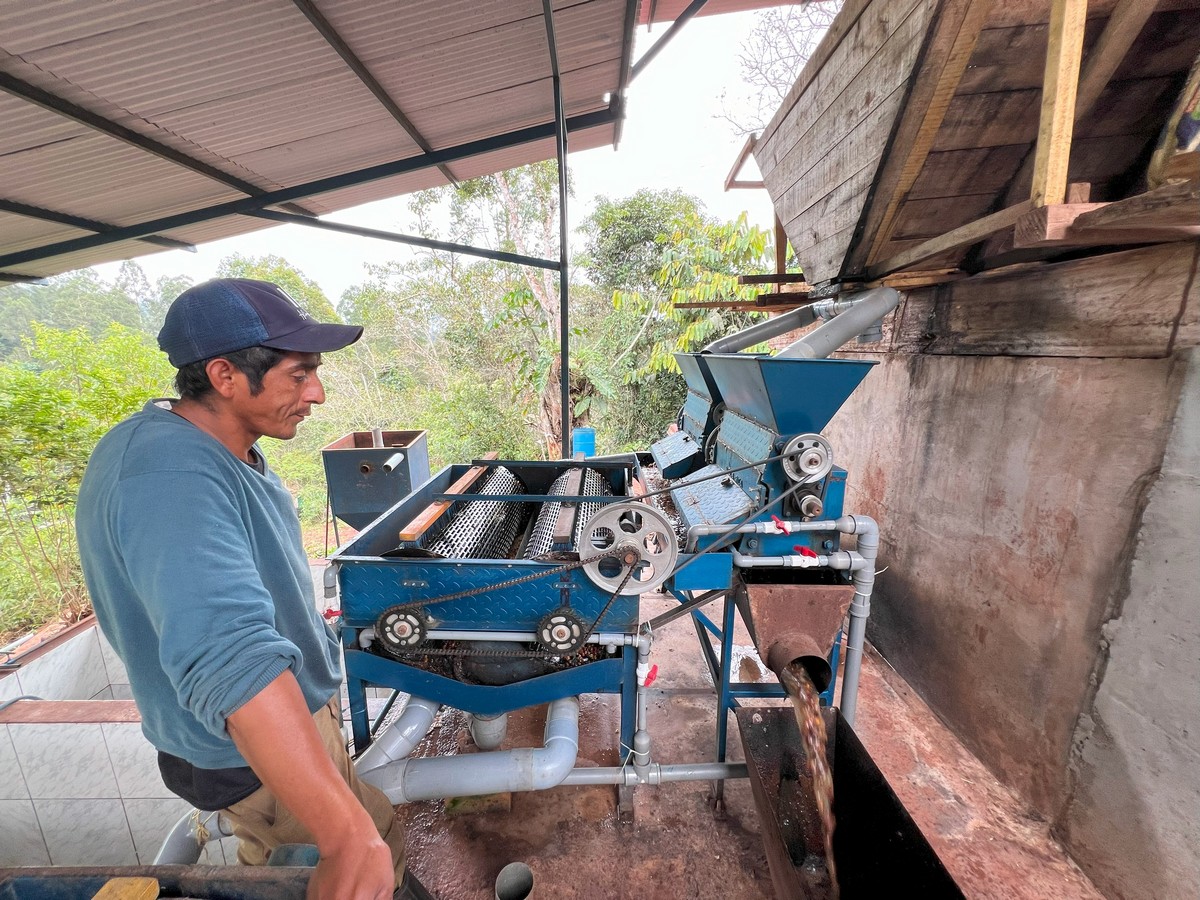
According to San Cristobal, the reserved coffees were then added to the FincaLab system for quality control and management, and resulted in a full shipping container of high-grade arabica coffee.
While not disclosing the purchase terms, San Cristobal told DCN that it purchased the entire container at a “highly competitive price,” allowing COOPAGRY members to capture enough income to invest more heavily in next year’s crop.
“Their first successful export boosted the income of all participating families and laid the foundation for growth in future harvests,” San Cristobal told DCN in an announcement of the initiative. “The Vivanco family is presently investing their income in the construction of a centralized wet mill to increase efficiency, as well as a permanent cupping lab.”
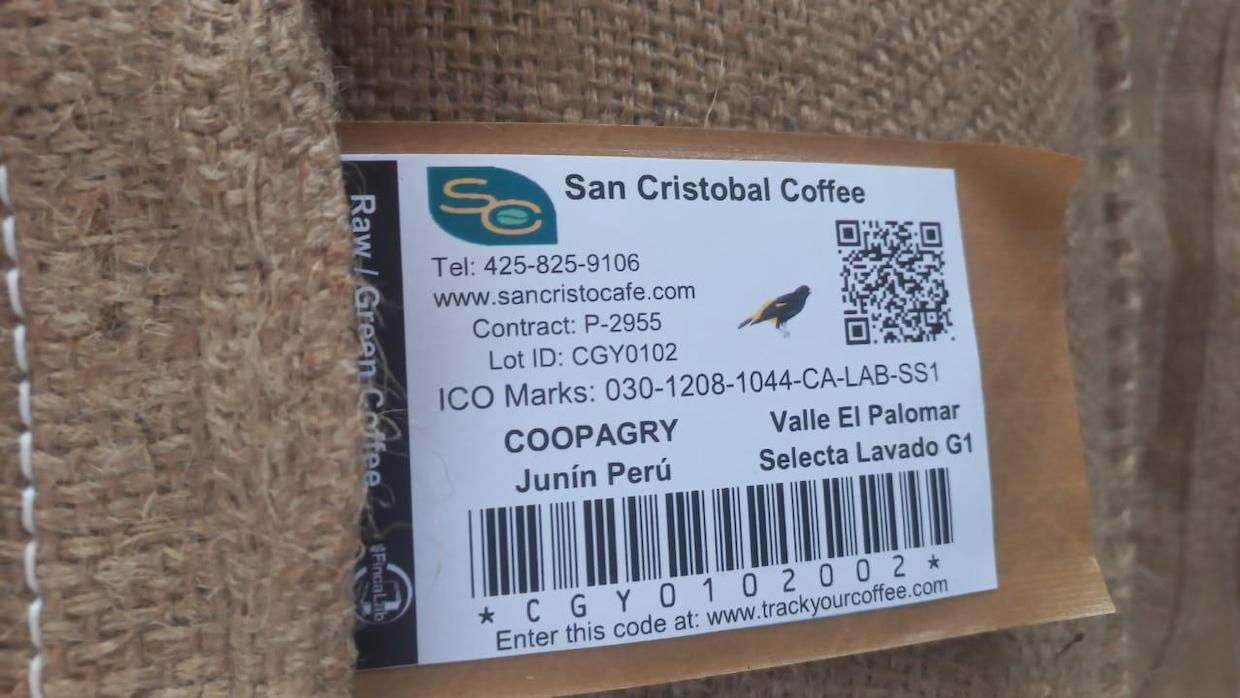
San Cristobal, which has been working with Mexican coffee producers for the past 28 years, and more recently added Ethiopia to its offer sheet, said it is currently taking pre-orders for the next crop of Peruvian coffees, while spot sales from the first COOPAGRY harvest are still available.
“We are finding these coffees from COOPAGRY to have lots of dark chocolate and citrus, often accompanied by sweet fruit notes like apple, grape, and fig,” San Cristobal’s Jacob Frankel recently told DCN. “They often have delicate floral or spice undertones like rose, cinnamon, and black pepper.”
Comments? Questions? News to share? Contact DCN’s editors here. For all the latest coffee industry news, subscribe to the DCN newsletter.
Related Posts
Nick Brown
Nick Brown is the editor of Daily Coffee News by Roast Magazine.






Comment